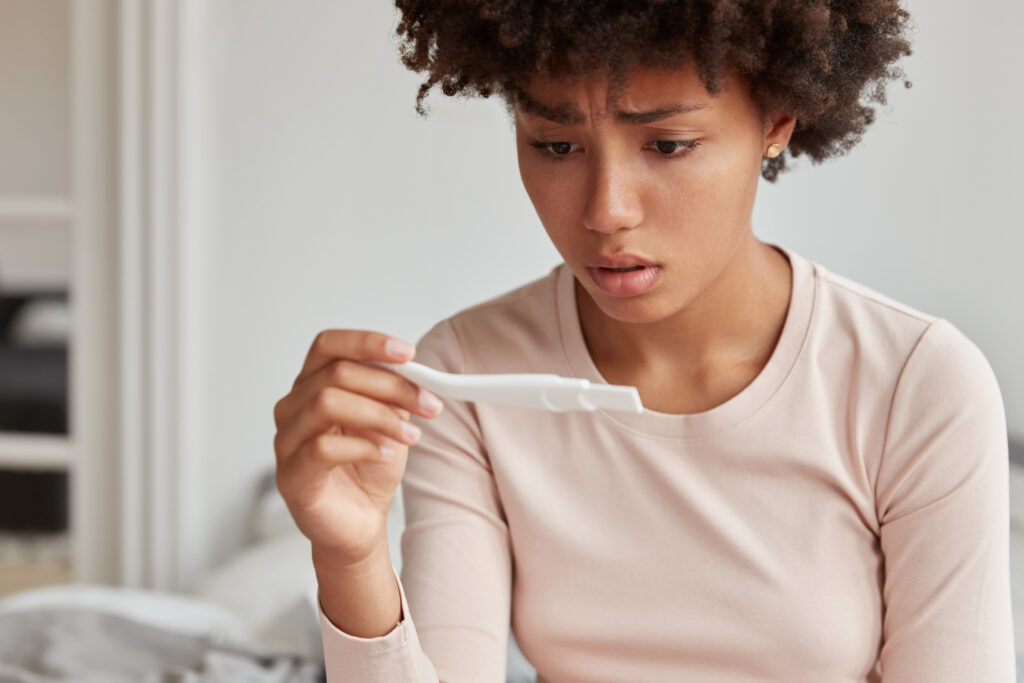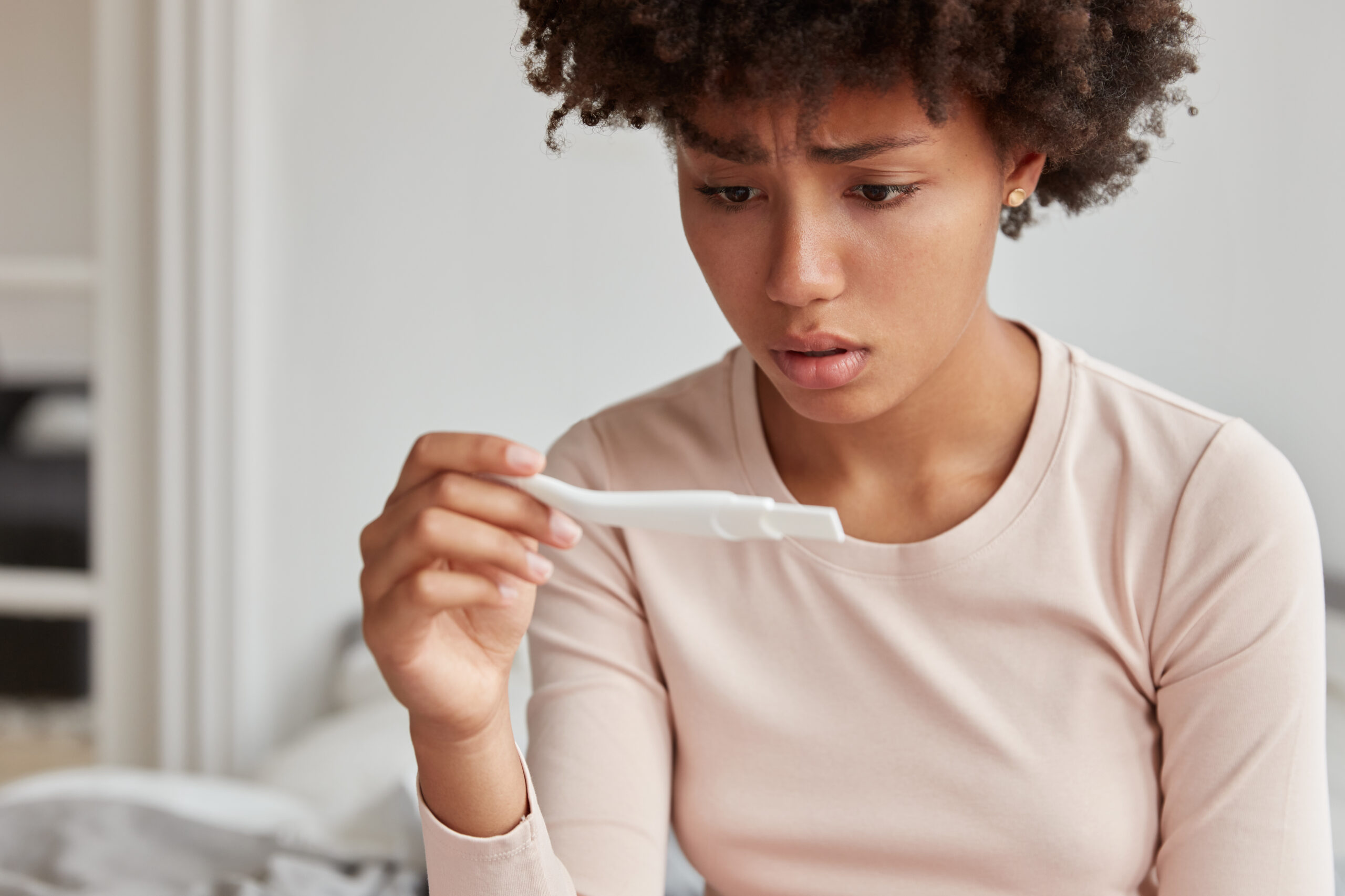Find out when the best time is to take a pregnancy test, how early testing affects accuracy, and why waiting may give you better results.
The question of “When can I take a pregnancy test?” is one of the most common inquiries for those who are hoping to confirm or rule out pregnancy. Timing is crucial when it comes to pregnancy tests because testing too early may lead to a false negative result, while waiting too long can increase anxiety and uncertainty.
In this guide, we’ll explore the science behind how pregnancy tests work, discuss the ideal timeline for testing, and offer practical advice to help you understand the best time for accurate results.
How Pregnancy Tests Detect Pregnancy
The Science Behind Pregnancy Tests
Pregnancy tests detect pregnancy by measuring the levels of the hormone human chorionic gonadotropin (hCG), which is produced shortly after a fertilized egg implants in the uterus. The concentration of hCG in your body increases as the pregnancy progresses, which makes it possible for pregnancy tests to detect this hormone in your urine or blood.
Most over-the-counter pregnancy tests are designed to be sensitive enough to detect hCG within a few days of a missed period, but testing earlier than this may result in low levels of hCG, leading to an inaccurate test.
Why hCG Levels Matter
hCG levels increase as the pregnancy progresses, but the rate of increase varies from person to person. In early pregnancy, the levels double approximately every 48–72 hours. This is why waiting even a few days after a missed period can significantly increase the chances of an accurate result.

When Should You Take a Pregnancy Test?
After a Missed Period: The Gold Standard
The best time to take a pregnancy test is after you’ve missed your period. This gives your body enough time to produce detectable levels of hCG. Most pregnancy tests are designed to give accurate results starting from the first day of a missed period, though some early detection tests claim to work even earlier.
Testing Before Your Missed Period: Pros and Cons
Early detection tests promise results before you miss your period, sometimes as early as six days beforehand. While these tests can work, they are more likely to give a false negative because hCG levels may still be too low for the test to detect. If you get a negative result from an early test but still think you might be pregnant, it’s best to wait until after your period is due and test again.
Irregular Periods and Testing
If you have irregular periods, determining the right time to test can be more challenging. A general rule is to wait at least three weeks after unprotected sex or potential conception before taking a pregnancy test. This gives your body enough time to produce detectable levels of hCG.
Early Signs That Suggest You Should Test
Common Early Pregnancy Symptoms
Many people experience early signs of pregnancy before they even miss their period. Some common early symptoms include fatigue, nausea, breast tenderness, and mild cramping. While these signs may suggest pregnancy, they can also be caused by other factors, such as hormonal fluctuations.
If you experience multiple early pregnancy symptoms, it may be a good idea to take a test, but remember that only a positive pregnancy test or confirmation from a healthcare provider can definitively confirm pregnancy.
How Ovulation Timing Affects Testing
Ovulation typically occurs about two weeks before your next expected period. If you are trying to conceive, understanding your ovulation cycle is critical for determining when to test. The most accurate time to take a pregnancy test is about two weeks after ovulation, which usually coincides with a missed period.
Factors That Can Affect Pregnancy Test Results
Medications and Conditions
Some medications, such as fertility treatments that contain hCG, can affect pregnancy test results, leading to false positives. On the other hand, certain medical conditions like ovarian cysts or menopause may cause elevated hCG levels even if you are not pregnant.
Testing Too Early: Risks of False Negatives
The primary risk of testing too early is receiving a false negative. When you take a test before there’s enough hCG in your system, the test may not detect it, leading to disappointment or confusion. If you get a negative result but still suspect pregnancy, wait a few days and test again for a more accurate outcome.
Time of Day: Does It Matter?
The time of day you take the test can also influence your result. Most pregnancy tests recommend using your first-morning urine, as it tends to be more concentrated and may contain higher levels of hCG. Testing later in the day, especially if you’ve been drinking a lot of fluids, can dilute your urine and potentially result in a less accurate test.
Tips for Accurate Pregnancy Testing
Choose a Reliable Test
There are many brands and types of pregnancy tests on the market, but not all are created equal. Early detection tests may promise results before a missed period, but it’s important to read reviews and choose a brand that is known for accuracy. Digital tests can also provide more straightforward results by displaying « pregnant » or « not pregnant, » reducing the chance of misreading the result.
Be Patient and Follow the Instructions
It can be tempting to test early, but waiting until after a missed period can save you from potential disappointment or confusion. Always follow the instructions on your pregnancy test carefully, including waiting the recommended amount of time before reading the result.
When to Seek Medical Advice
If your home pregnancy test results are inconclusive or if you suspect pregnancy but continue to get negative results, consider visiting your healthcare provider for a blood test, which can detect hCG earlier than a urine test. Additionally, if you’re experiencing any unusual symptoms or concerns, it’s always a good idea to consult with a medical professional.
Internal Links for Further Information
For additional support and related topics, explore these resources on our website:
- Pregnancy Symptoms: Learn about the most common early signs of pregnancy.
- Pregnancy Testing: Dive deeper into best practices for accurate pregnancy testing.
- Postpartum Care: Discover how to care for yourself after childbirth.
External Links for Further Learning
Here are some trusted external resources to help you better understand pregnancy testing and related topics:
- American Pregnancy Association: Offers detailed guidance on when to take a pregnancy test and what to expect (Visit: American Pregnancy Association).
- NHS UK: Provides accurate and helpful information on pregnancy tests and other healthcare topics (Visit: NHS UK).
- Planned Parenthood: Get advice on pregnancy testing and reproductive health care (Visit: Planned Parenthood).
Conclusion
Knowing when to take a pregnancy test can make the difference between receiving an accurate result and being left with uncertainty. While early tests can be tempting, they often come with the risk of false negatives due to low hCG levels. Waiting until after a missed period is generally the best time for reliable results, but factors such as your ovulation timing, medications, and even the time of day can all affect the accuracy of your test.
Whether you’re trying to conceive or seeking peace of mind, following the advice in this guide will help you better navigate the world of pregnancy testing. By understanding the timeline for testing and recognizing the factors that influence results, you can make informed decisions about when to test and what to do next.
